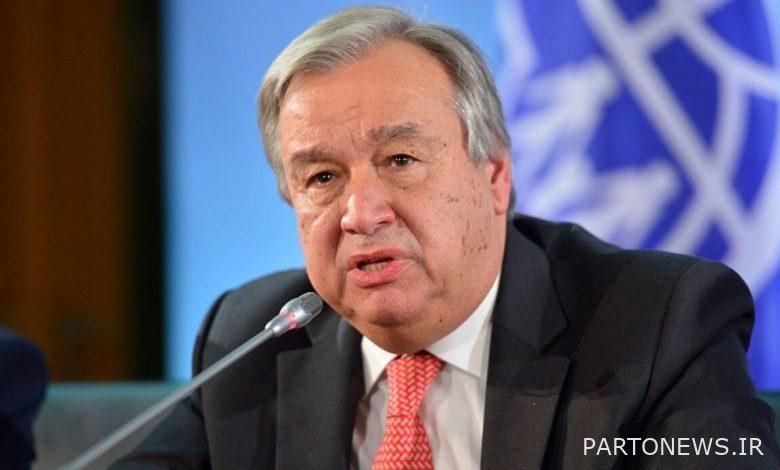Guttierez warns of growing poverty and hunger for the first time in decades

“The Covid-19 epidemic, the climate crisis and the spread of digital technology in all walks of life have posed new threats to human rights,” the secretary-general said in a message on Friday, local time. “Deprivation and discrimination are rampant,” Guterres said. Public space is shrinking. Poverty and hunger have increased for the first time in decades. Millions of children have lost the right to education. Inequality has deepened. But we can choose another path.
Seventy-three years ago, on this day, the UN General Assembly adopted the Universal Declaration of Human Rights. The principles set out in this Declaration are essential for the realization of all human rights, including civil, economic, cultural, social and political, for all people. Post-epidemic recovery should be an opportunity to promote human rights and freedoms and rebuild trust.
Guterres concluded by emphasizing that the United Nations will continue to strive for justice, equality, dignity and human rights for all at all times.
Meanwhile, UN Special Rapporteur Elena Dohan on the negative impact of unilateral coercive measures on the enjoyment of human rights said that unilateral sanctions harm everyone, especially the human rights of women, children and other vulnerable groups. Sanctions are harmful to the population of the target countries.
He added: “We know that unilateral sanctions prevent the population of the sanctioned countries from enjoying their human rights, and this impact is particularly strong for vulnerable groups.” In addition to women and children, these groups include indigenous people, people with disabilities, refugees, internally displaced persons, migrants, the poor, the elderly, people with serious illnesses, and others who face specific challenges in society.
Dohan explained that the complexity of sanctions regulations, combined with extraterritorial enforcement and heavy penalties, has led to over-compliance with unilateral sanctions by institutions for fear of the consequences of their unintentional violations.
The UN Special Rapporteur noted that sanctions often include fuel sanctions and deprivation of components for the maintenance of critical infrastructure such as food, water, sanitation, health and electricity systems.
The UN special rapporteur added that the sanctions prevent countries from supplying fuel, delivering medicines and medical equipment, and preventing people from receiving medical care, including testing and control during pregnancy, childbirth, and vaccinations of children. And seek medical help to go to hospitals.
Dohan called on human rights organizations to continue their humanitarian assistance to vulnerable groups in the embargoed countries, and called on countries that impose unilateral sanctions to lift or reduce the sanctions.
.

